Bernie Marsden's guitar collection
Eight of the finest from his exquisite 200+ guitar haul
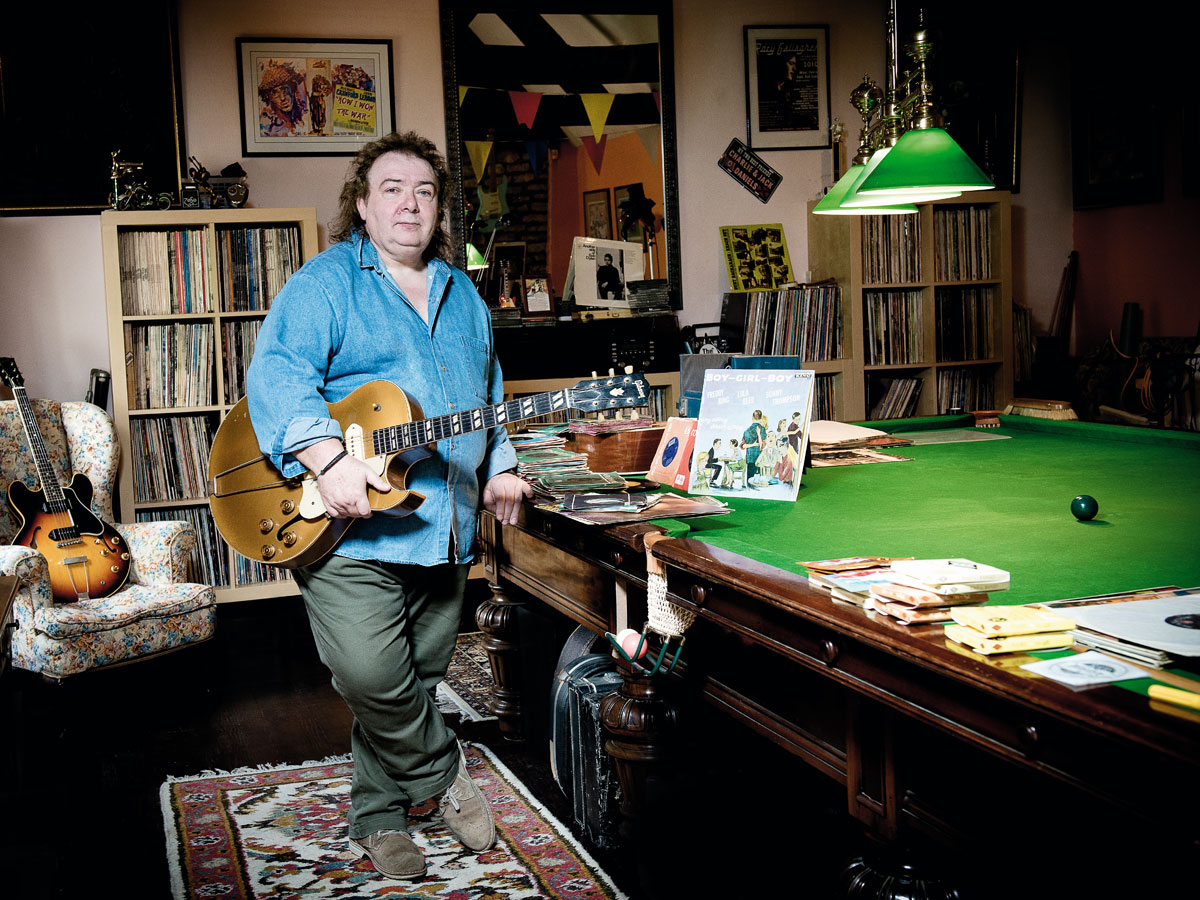
Introduction
Previously, we’ve got up close and personal with one of the most iconic ’Bursts of them all: Bernie Marsden’s 1959 Gibson Les Paul, affectionately nicknamed ‘The Beast.’
“Every Whitesnake record I did has that guitar on it - I wrote all those songs on that guitar,” Bernie confided of an instrument that cost him £500 in 1974, though “it may as well have been 50 grand at the time”.
The Beast was all but retired from regular live use in the late 1990s, but recently, Bernie has so often loaned it to bluesman Joe Bonamassa that, “in the last few years, Joe has played it much more than I have.”
Still, as we head to Buckinghamshire to step through the door chez Marsden, it immediately becomes clear that he’s not exactly short of a guitar or two. Or 200, for that matter.
As a serious collector, over the years Bernie has bought, sold and traded his way up, amassing a haul of classic instruments that rivals any we’ve seen.
Equally jaw-dropping is his vinyl collection, and it’s surrounded by many thousands of 12-inch slices of rock and pop history, plus a full-size snooker table, in what is perhaps the ultimate ‘man cave’ - which is where we’re treated to the highlights of Bernie’s all-killer guitar collection.
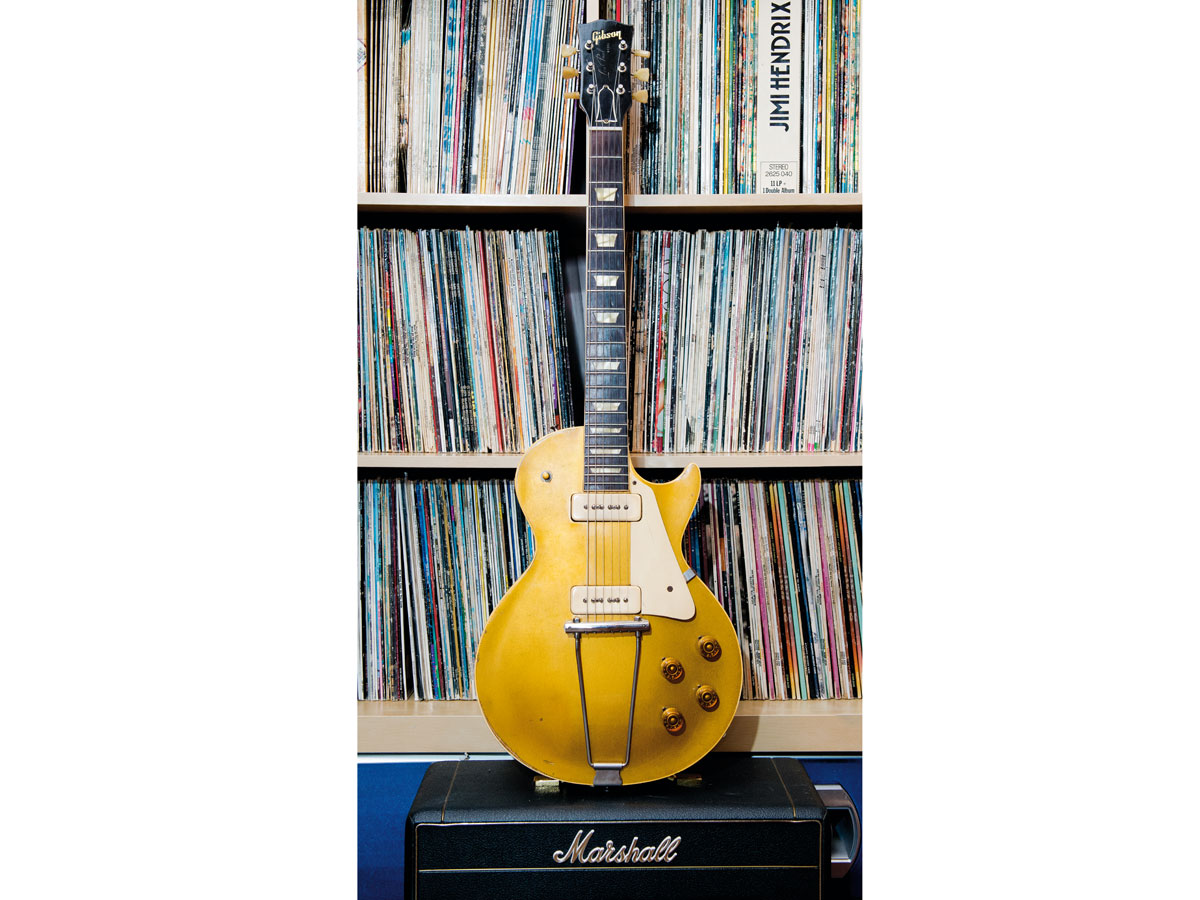
1952 Gibson Les Paul
What makes an all-original example of Gibson’s first solidbody from the first year of production even more desirable? When it’s signed by Les Paul himself, of course.
“Signed with a nail,” Marsden reveals. “This is from the second run in 1952. The only difference from the first run is that the screws holding in the pickups on the very first run are diagonal. There’s one kind of east and one kind of west. There’s no serial on it, it’s clean on the back.
"Les Paul played it, and he said, ‘This is great. This is a really good one, for an early one.’ "
“It was signed for the guy I bought it from, by Les, who was with Danny Gatton, a friend of his. He said, ‘Les, we’ve got a guitar and wondered if you’d do us the honour of signing it?’ He played it, and he said, ‘This is great. This is a really good one, for an early one.’
Then he said, ‘I’ll do it properly.’ He put his hand in his pocket and he pulled out a nail, and he scratched ‘Les Paul’ into the scratchplate. I read a conversation with him somewhere, and he’s going, ‘If you see any of them that are signed with a pen...’ basically, the chances are, it’s not him.
“Apparently, Danny Gatton stood there in awe of Les the whole time and didn’t say very much. It’s a nice part of the story, isn’t it? A player everybody reveres, and he’s looking at Les going, ‘Mr Paul’.
“It’s difficult to play, if you’re used to playing a Les Paul, because your hand is forever up in the air, basically. But actually, I used this when I sat in with a friend’s band. I took this because I just wanted to hear it. I was absolutely knocked out; I mean, it just sounds great.”
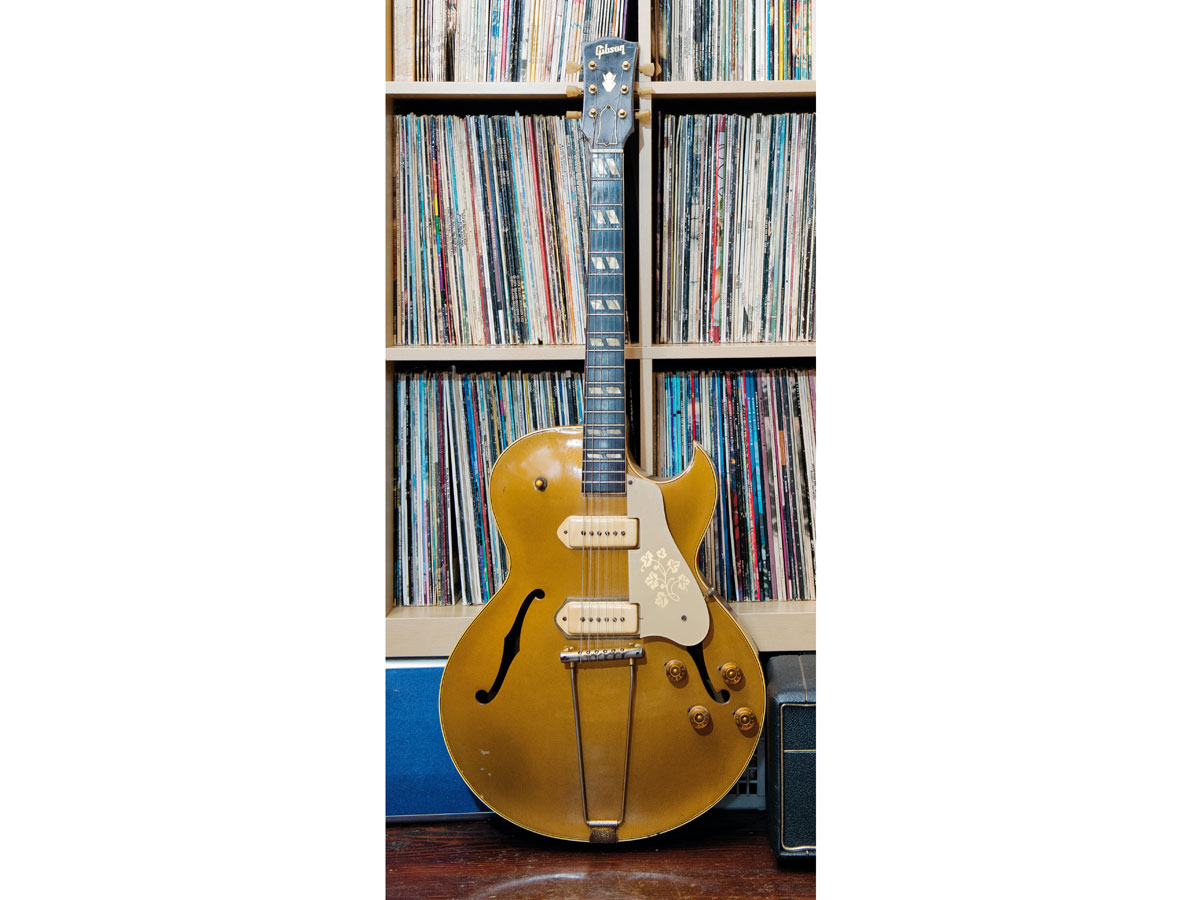
1952 Gibson ES-295
“The 295 is a guitar I haven’t had for that long, maybe four years. It’s from 1952, all-original, all-gold.
"If you plug it into a small amp, it really is a very, very good sound"
"It came via a friend, who tried to get Scotty Moore to sign it before I picked it up, but sadly, Scotty’s health wasn’t good.
“It’s a cool guitar and it is of the period - I love the stencilling on it and stuff like that. It’s also a very nice guitar to play. A lot of people probably think, ‘Well, what do you do with that?’ But if you plug it into a small amp, it really is a very, very good sound. It’s not built for big amps though, not really.”
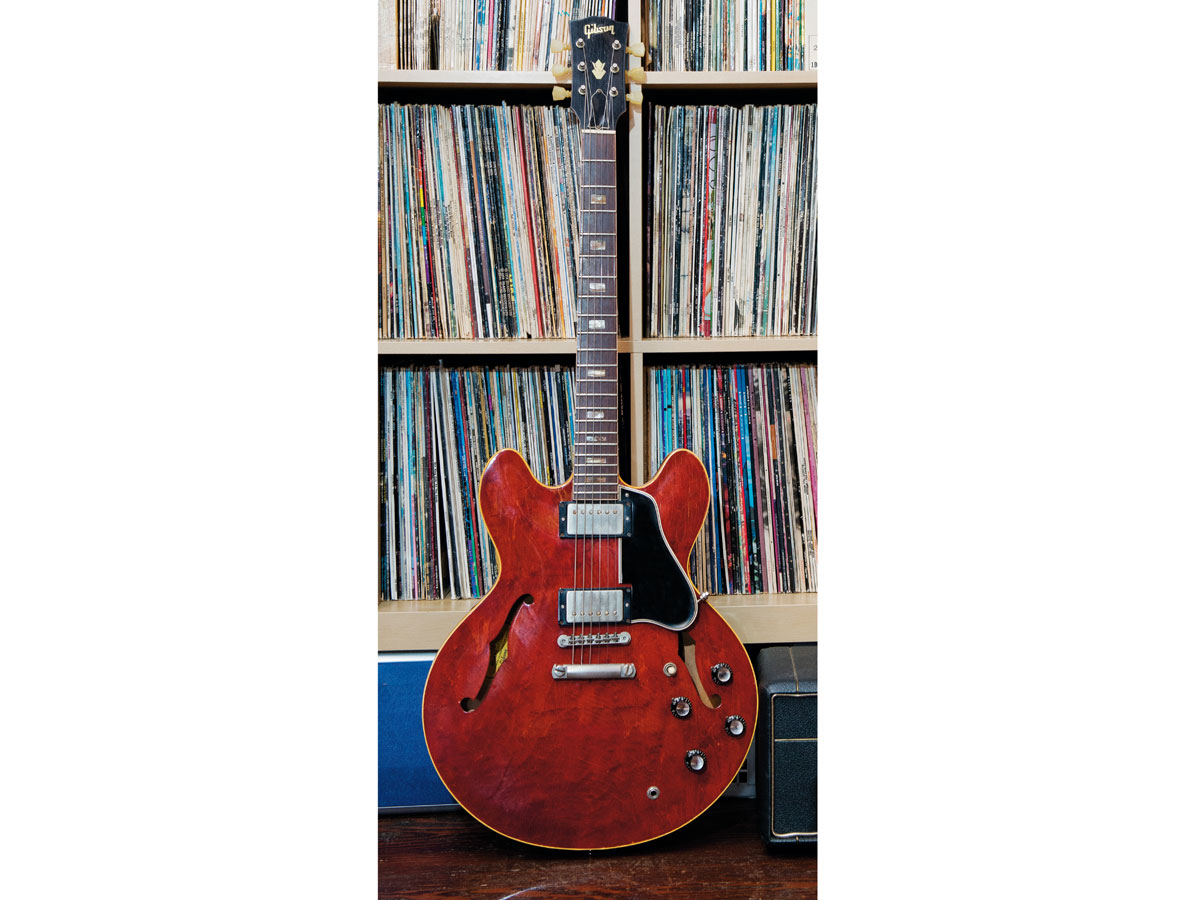
1965 Gibson ES-335
“This is a 1965 ES-335 in glorious Blood Cherry. I’ve had a lot of 335s over the years. I sold one about 10 years ago, which I’ve kind of regretted ever since and wanted to replace it.
"It’s classic mid-60s; the guitar that I used to dream of owning when I was 15 or 16"
"This one is actually better than the one I sold, so that’s okay. This one’s a year younger than the one I sold. It’s got a pretty big neck - what I call a man’s guitar really - but it’s classic mid-60s; the guitar that I used to dream of owning when I was 15 or 16.
“Everybody had 335s or 345s. They were very popular in the 60s, but I don’t think anybody got a chance to really use them until Eric fired that one up, à la Freddie and BB King. Before that, everybody just played chords and strummed away on them. They are fantastic guitars.”
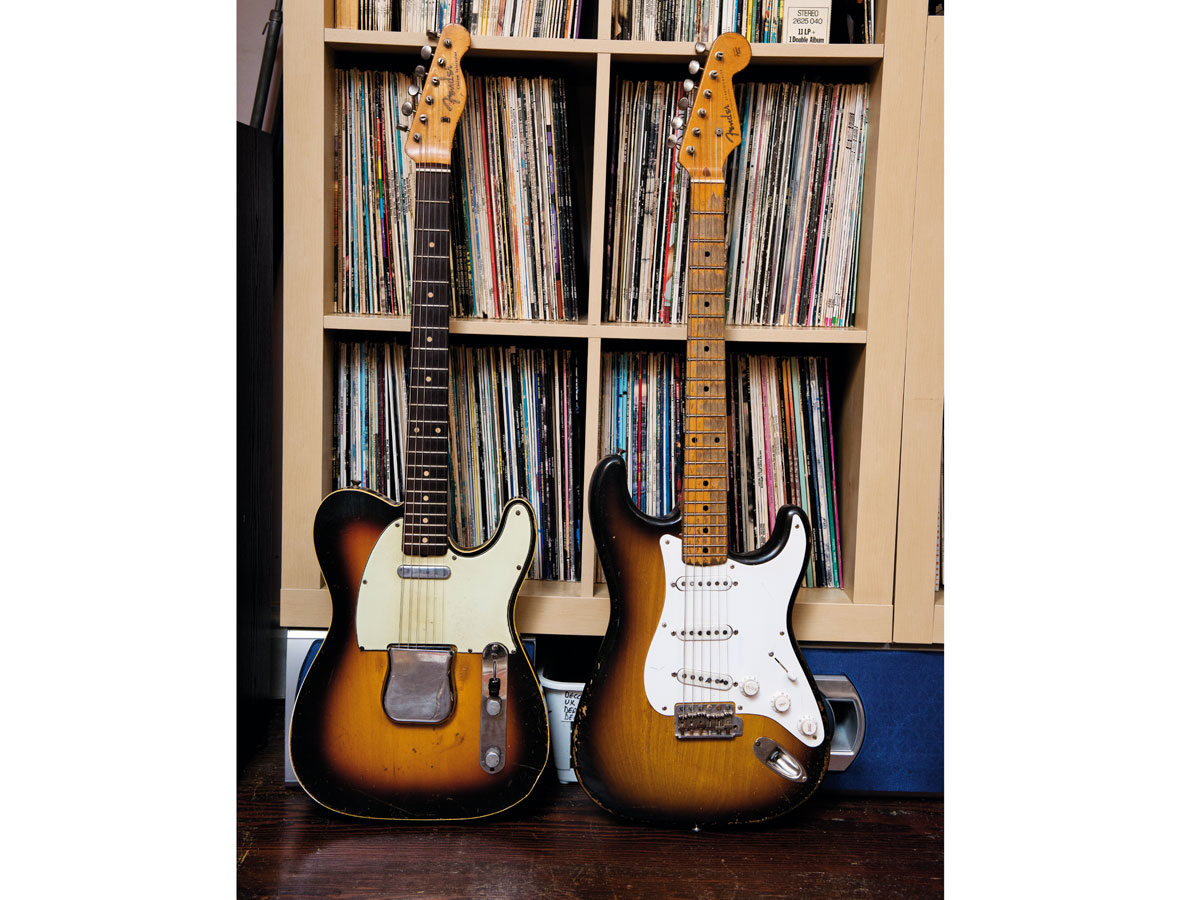
1955 Fender Strat & 1961 Fender Custom Telecaster
“The Stratocaster is basically a ’55. It’s been made up from bits - it didn’t start life as it looks, but it looks fantastic.
"I don’t play Fenders much, as you probably know, but when I do, that’s the one I dig out"
"They are all proper bits from the period, a bit like Eric’s. It’s a lovely guitar to play. I don’t play Fenders much, as you probably know, but when I do, that’s the one I dig out, and the Sunburst 1961 Custom Telecaster.
“I’ve probably had that for 15 years. I’ve only ever used it once. I used it at Bob Harris’ birthday party. Robert Plant was singing and I was playing the guitar. I don’t think I’ve used it since. But it’s a lovely guitar.”
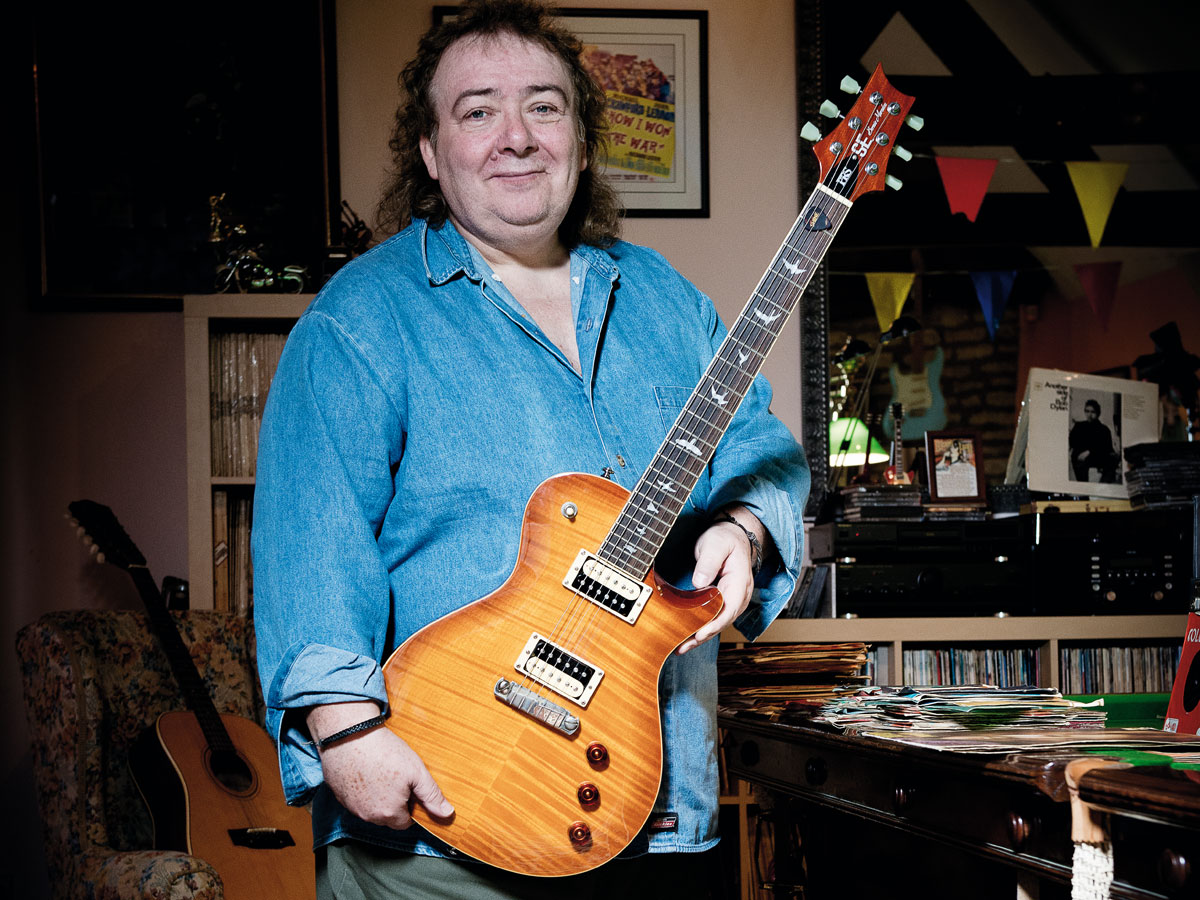
PRS SE Bernie Marsden prototype
“This is the prototype Bernie Marsden SE model, which was the second one that came over. I wanted a black headstock, and this one has a red headstock. Some people say when they see it, ‘You should have left it like that’. I believe that in the summer, there may well be some limited-edition Bernie models from Korea with matching headstocks and bodies.
“I think there’s also going to be a limited-edition American Bernie as well. I’ve got into their terminology. That’s what they call them. They say, ‘The Bernies are doing ever so well!’
"I wanted to have a [signature] guitar that guitar players could come up to me and say, ‘I’ve got one of your guitars because I can afford it.’"
“It’s a really top-selling budget guitar. It was my decision to have a budget guitar. Paul Reed Smith originally wanted to do an American model, but I wanted to have a [signature] guitar that guitar players could come up to me and say, ‘I’ve got one of your guitars because I can afford it.’
“A lot of people I know - and I know this because they send me emails or they come to gigs and we talk after shows - have bought it as a second guitar and it’s very rapidly become their first guitar. They’re just all knocked out.
“I think a lot of them come along to make sure I’m using the guitar that they are as well, which I do! I will own up to having a couple of customised guitars, which they did for me in America. But then I just go and pick a guitar from stock, which I really like. They all feel the same; they’re all pretty much the same.
“This is a nice one, the prototype, but I found that putting on [PRS] 53/10 pickups was... it wasn’t necessarily better. These zebra SE pickups that come with the standard guitar, they really do the job. But the 53/10s have just a little bit more finesse, and I find that when I’m playing quiet passages, you can tell they’re a higher quality pickup.
“But overall, I can’t tell you how delighted I am with the guitar’s popularity. I don’t mean that in economic terms, although of course that’s always alright. It’s nice to have a guitar with your name on it by a company that you have respect for.
"I think I was the only person ever to have two signature guitars out last year from two of the major companies in the world!” [Gibson Custom recently recreated The Beast for a sumptuous, limited-edition Collector’s Choice run - Ed].
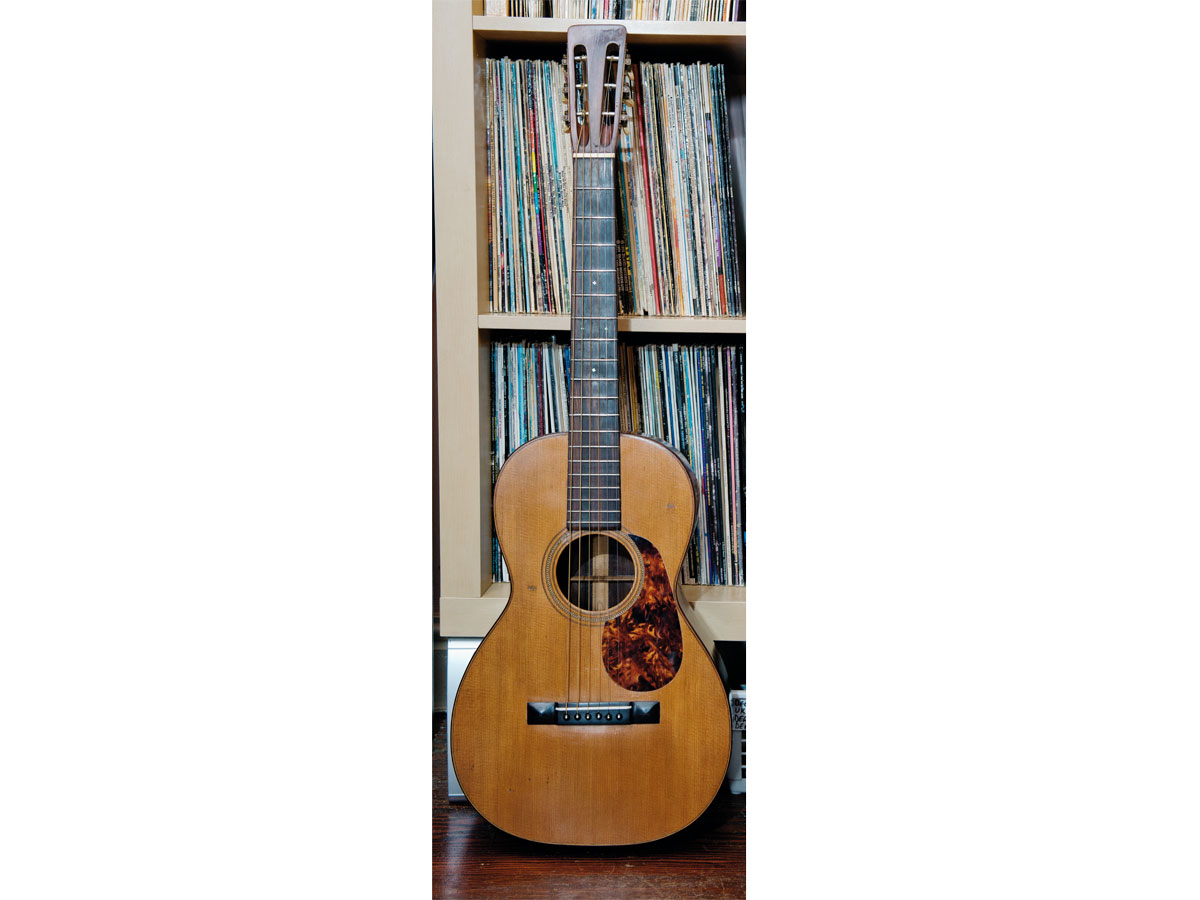
1920 Martin 0-21
“I’ve had this O-21 about 18 months, maybe a couple of years. It’s just sensational. It shouldn’t sound like it does. It’s just a small-bodied Martin, but so classic.It’s just a big, big sound.
"It’s in the original case and comes with a letter from Mike Longworth, who worked at the Martin plant in Nazareth"
"I never purport to be anything like a guitar expert on acoustic guitars. I’m hardly an expert on electric guitars. I know a thing or two about some of them, but acoustic-guitar-wise, I know what sounds good.
“It had one owner and came from a family of players. It’s been played, but it’s been incredibly well looked after. It’s in the original case and comes with a letter from Mike Longworth, who worked at the Martin plant in Nazareth - a very famous guy. The letter that states what it is and when they made it. They finished making these in 1926, so I guess this is one of the later ones, as they made them from the end of the 1890s.
“So this is a little piece of history for sure, and it’s a great guitar to play. It’s scary, because it seems so fragile, but it’s actually quite sturdy.”
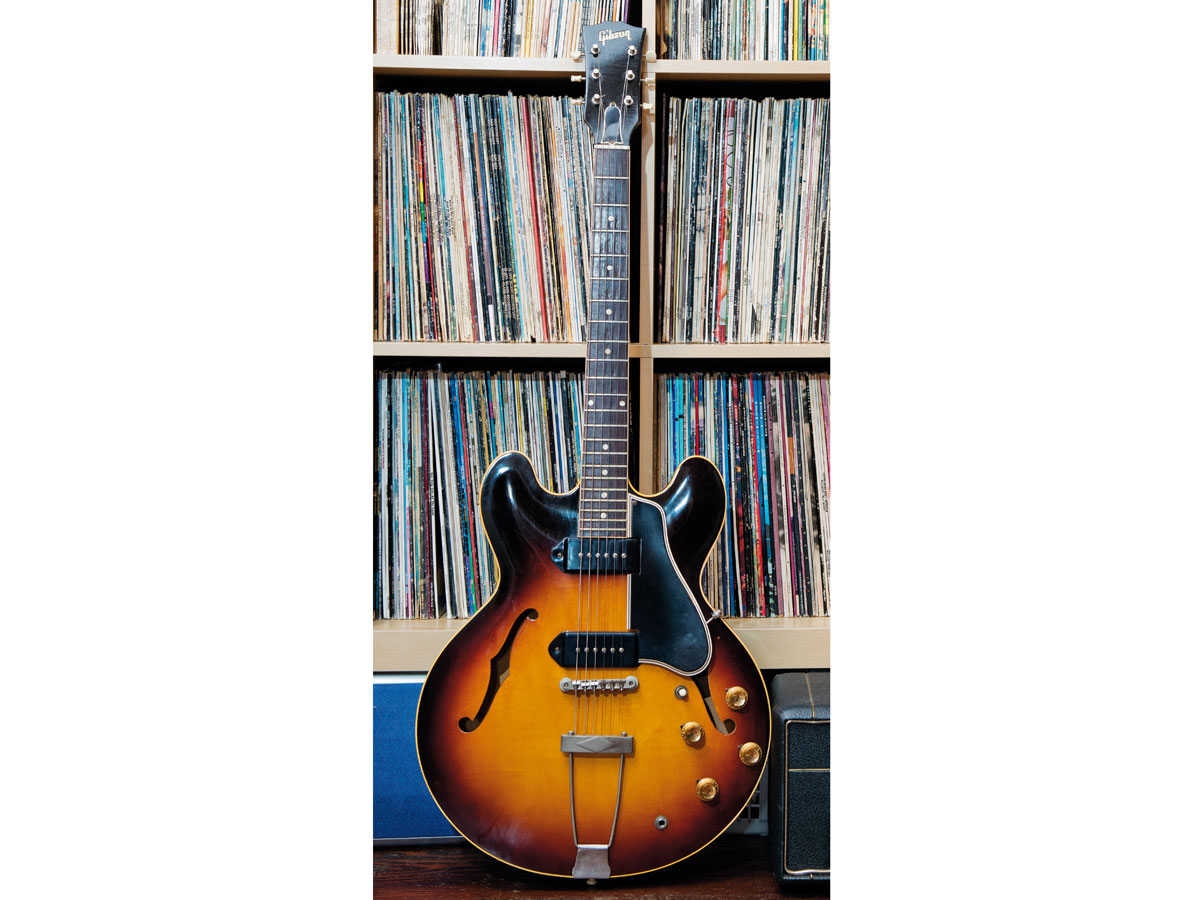
1960 Gibson ES-330
“This is in pretty amazing condition, really. I’ve had this for about four or five years. I’d always wanted one of these and I just like the 33 series, anyway. I’ve got two or three others, but I’ve always fancied one of these.
"When one turned up in this condition, I just couldn’t say no."
“When one turned up in this condition, I just couldn’t say no. It’s in the Lifton case, which is all pink and beautiful. I put it up against a VOS reissue, and the reissue looked in worse condition than this! This one looks too good really, doesn’t it? But it is real.”
Guitarist is the longest established UK guitar magazine, offering gear reviews, artist interviews, techniques lessons and loads more, in print, on tablet and on smartphones
If you love guitars, you'll love Guitarist.
Find us in print, on Newsstand for iPad, iPhone and other digital readers
